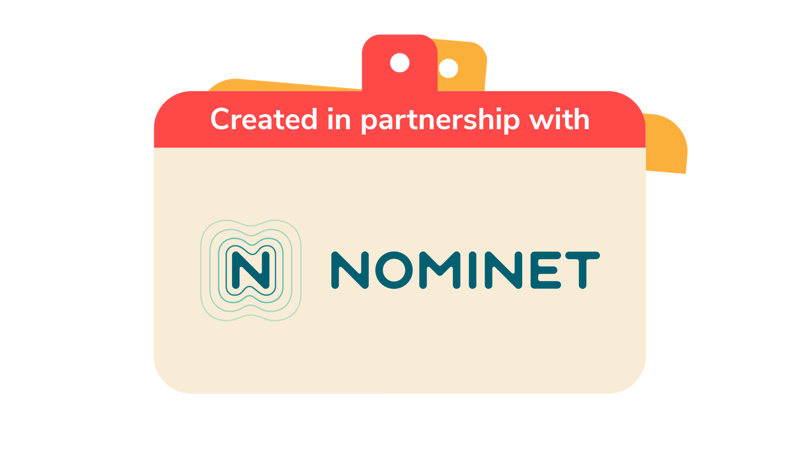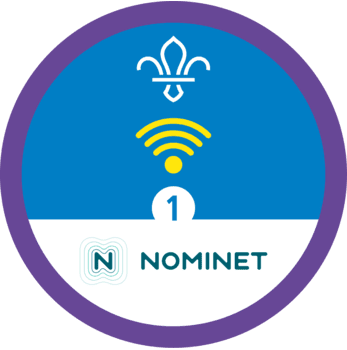
Party quirks
You’ll need
- Pens or pencils
- Scrap paper
- Bowls
Before you begin
- You can play this game as a whole group, or split into smaller teams if there are lots of people. It works best with between 6 and 10 people in each group.
- You may want to have older helpers on hand to support everyone.
- Write down some party quirks on different scraps of paper, and put them into a bowl.
We all communicate differently
- The person leading the game should explain that we all change how we communicate depending on who we’re talking to. Would people talk to their head teacher in the same way they talk to their best friend?
- Everyone should think about all of the different people they interact with each day, in person or online. They may want to share some examples.
- Next, think about some of the reasons why you might interact differently with these people. Make a list of some of the differences between them, for example, if people are a different age, or come from different places.
- Ask if anyone can think of some examples of ways they might communicate differently online, depending on who they’re talking to.
Play party quirks
- Everyone should get into a circle.
- The person leading the game should choose one person to be the party host. The party host should stand in the middle of the circle. They should mime setting up for a party, for example, by pretending to blow up balloons or put out snacks.
- The person leading the game should give everyone else a quirk from the bowl. Everyone should keep their quirk a secret – they shouldn’t share it with anyone yet.
- The person leading the activity should choose someone from the circle to become the first guest to join the party. The guest should enter the party space in the middle of the circle by pretending to knock on a door or ring a doorbell.
- The party host should invite the guest in and welcome them. The guest should act out their quirk (for example, if their quirk was ‘acts like a baby’, they could pretend to cry or suck their thumb instead of talking).
- The party host should keep welcoming the guest. They could ask them what they’d like to eat or drink and what games they’d like to play, or ask them how their day’s been and if they have any plans for the weekend. The guest should keep acting out their quirk.
- The party host should try to guess the guest’s quirk. If the host guesses right, the guest should reveal their quirk. If they don’t guess right, the guest should keep acting.
- The host should respond to the guest’s quirk. For example, if the guest is shy the host should make sure they’re OK. If the guest is angry, they could help them calm down, or if they’re scared they could help them feel safe.
- The guest should leave the party, and the person leading the game should choose another person to become the guest.
- Everyone should repeat steps four to nine.
- Keep going until everyone’s had a turn at being the guest. Swap hosts during the game, so a few people get a turn.
- I’m shy
- I’m angry
- I’m nervous
- I’m boastful
- I’m a baby
- I’m chatty
- I always agree with people
- I always disagree with people
- I talk like a pirate
- I’m scared of everything
- I laugh really loudly
- I’m always apologising
- I’m rude about other people
- I’m always on my phone
- I’m really happy
- I’m kind
- I’m always joking
- I love sports
- I copy what other people say
- I’m very serious
- I always tell lies
- I’m tired
Reflection
This game was all about communicating. What clues did people use to show or guess the quirks? People may think about the things people said, their tone of voice, their facial expressions, and maybe even physical clues like walking or moving. Sometimes, communicating is a bit like being a detective! Is it harder or easier to communicate online? Although people have longer to think about the things they say, communicating online can be tricky as there aren’t clues like tone of voice, facial expressions, and walking or moving.
This game also needed people to care. How do you think each guest felt at the party? Some probably had a great time, but others, such as the ones who were scared or angry, probably didn’t feel great. How did the host react to each quirk? What could people do in real life to respond to someone showing one of the quirks? What about if someone was showing a quirk like this online? People with real feelings are behind each online persona (including celebrities), so it’s important to think about their feelings and the impact of words and actions when communicating online.
Safety
All activities must be safely managed. You must complete a thorough risk assessment and take appropriate steps to reduce risk. Use the safety checklist to help you plan and risk assess your activity. Always get approval for the activity, and have suitable supervision and an InTouch process.
It’s up to you how many guests turn up at once. Keep it simple with one at a time, or change the level of challenge by inviting a few guests at once (or invite a guest before the previous one has left). If there’s more than one guest, they could interact with each other to give the host extra clues.
The rest of the group should play along and try to guess the quirk. If the host is struggling, they could give hints about questions to ask, or clues about the quirk.
You don’t have to stick to the quirks we’ve suggested – why not add some of your own?
Some people may find it harder to recognise tone of voice or facial expression – make sure that verbal communication is clear and that people give clear clues this way.
Think about how you’ll choose guests – depending on your group, it may work to tap people on the shoulder or call them by name.
All Scout activities should be inclusive and accessible.
Think some more about the impact of different quirks by giving people a task or challenge to complete while they’re acting. For example, people could pretend to put crisps in a bowl, lead a dance, or play pass the parcel. Did the quirks help or hinder them as they completed their challenge? An angry person may not be the best person to lead a game, but a kind person may be great at welcoming new guests.
Young people could come up with their own quirks for others to guess.
